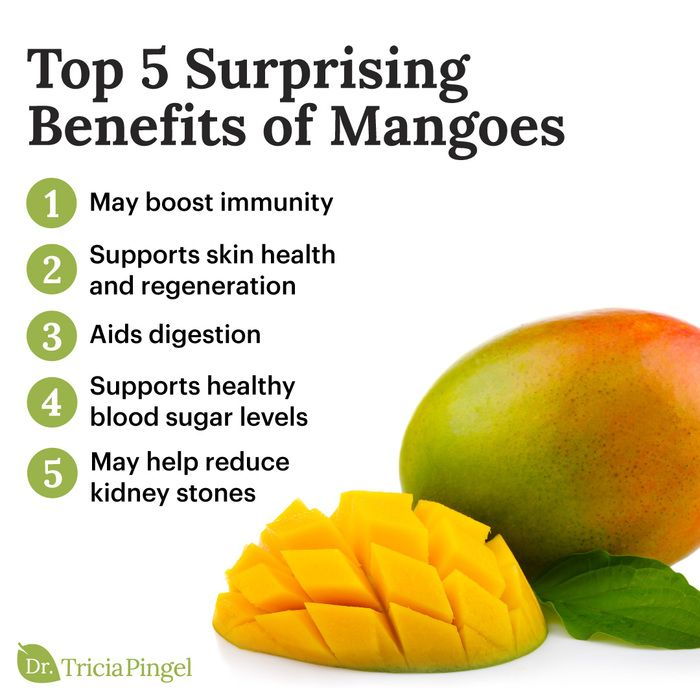Mango (Mangifera indicais) is a delicious summer fruit
and a natural dessert that is consumed across the globe. Apart from the taste,
it has great nutritious value and acts a natural medication that improves digestion
and immunity. Mango is rich in polyphenols that contain anti-inflammatory,
anti-oxidant and anti-cancer properties (1).
Some of the benefits of mango are listed below;
1. Nutritional value
Mangoes are full of nutrition and a single cup of mango (165
g) contains
§ Water 138 grams
§ Energy 99 kcal
§ Protein 1.35 grams
§ Total
lipid (fat) 0.62 grams
§ Carbohydrate
24.8 grams
§ Fiber,
total dietary 2.6 grams
§ Sugars
22.6 grams
§ Calcium
18.2 milligram
§ Iron
0.26 milligram
§ Vitamin C: 67% of the Daily Value (DV)
§ Copper:
20% of the DV
§ Folate:
18% of the DV
§ Vitamin
B6: 12% of the DV
§ Vitamin
A: 10% of the DV
§ Vitamin
E: 10% of the DV
§ Vitamin
K: 6% of the DV
Vitamin C strengthens the immune system and facilitates
the absorption of iron thus promotes cell growth and amazingly you can fulfil
67% of daily vitamin C requirement through a single cup of mango.
Mango also contains a big proportion of folate that is really important for healthy pregnancy so eating mangoes support fetal growth and development (2).
2. Gastrointestinal effects
Dietary fiber present in mango improves digestive health
and it is reported that mango consumption relieves constipation and raw mango
was more effective than the similar amount of fiber supplementation (3).
Research studies revealed that mangiferin (an active
constituents of mango) reduces intestinal inflammation and helps
gastrointestinal transit thus exhibits anti-ulcerogenic potential. Mangiferin
also protects against ethanol-induced gastric lesions and ulcer score. Interestingly,
it effectively eliminates Helicobacter pylori, the most harmful bacteria that
causes ulcer, chronic gastrointestinal inflammation, and gastric cancer (4).
3. Anti-diabetic effects
In diabetic patients, blood sugar level is increased due
to the decreased production of insulin or resistance to the available insulin. A
study revealed that freeze dried mango pulp reduced the blood sugar levels similar
to the anti-diabetic drug rosiglitazone. However, rosiglitazone has various
side effects whereas mango pulp is relatively safe and does not produce adverse
effects (5).
There is a general misconception that mango should be
avoided by diabetic individuals due to high sugar content but it is reported
that mango consumption causes similar rise in glycemic index as the white bread
and rice (6). However, this is an intensive topic that requires further
research and we will discuss it in detail in upcoming articles so, keep reading!
References
1.https://www.mdpi.com/2072-6643/9/5/525
2.https://www.healthline.com/nutrition/mango#1.-Packed-with-nutrients
3.https://www.everydayhealth.com/diet-nutrition/diet/mangoes-nutrition-benefits-types-and-more/
4.https://japanjournalofmedicine.com/wp-content/uploads/2018/04/JJM-109.pdf
5.https://setpublisher.com/pms/index.php/jpans/article/view/1401
6.https://www.academia.edu/39958509/Mango_Yes_or_No_for_Individuals_with_Diabetes







0 Comments